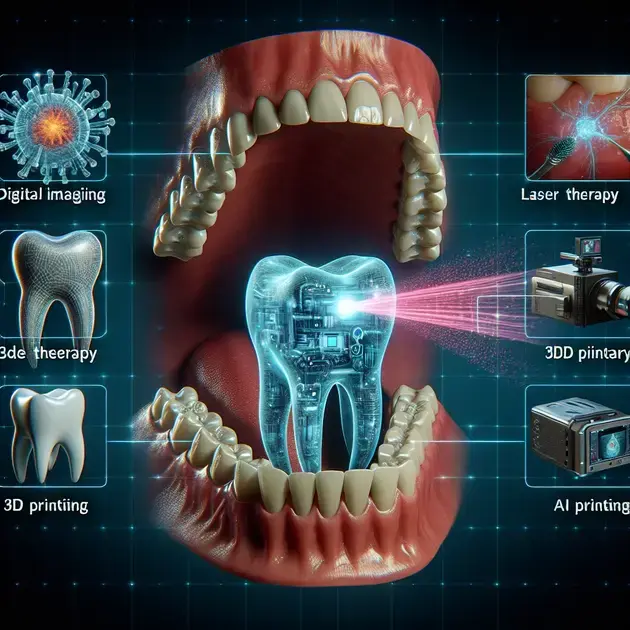Are you struggling to find the best medication for periodontitis? Look no further! This comprehensive guide will provide you with all the information you need to make an informed decision on how to effectively treat this common dental problem.
Periodontitis, also known as gum disease, affects millions of people worldwide. With the right medication and treatment plan, you can effectively manage and even reverse the effects of this condition. Keep reading to discover the best options available to combat periodontitis and regain optimal oral health.

Understanding Periodontitis Medications
When it comes to understanding periodontitis medications, it’s essential to consider the key factors that play a role in the treatment process. Periodontitis is a severe gum infection that can lead to tooth loss if left untreated. Medications are often prescribed to manage the condition and prevent further complications. Here are some important factors to consider when exploring periodontitis medications:
1. Consultation with a Dental Professional
The first step in understanding periodontitis medications is to consult with a dental professional. A dentist or periodontist will evaluate the severity of the gum infection and determine the most suitable treatment plan. They will recommend specific medications based on the individual’s condition.
2. Types of Medications
There are various types of medications commonly used in the treatment of periodontitis. These include antibiotics to fight bacterial infections, antimicrobial mouth rinses to reduce plaque and inflammation, and prescription-strength toothpaste to control bacteria growth. Understanding the purpose of each medication is crucial for effective treatment.
3. Dosage and Administration
It is important to follow the prescribed dosage and administration instructions for periodontitis medications. Improper use of medications can lead to treatment failure or adverse side effects. Be sure to ask your dental professional or pharmacist about any concerns regarding dosage or administration.
4. Potential Side Effects
Like any medication, periodontitis medications may have potential side effects. Common side effects include nausea, vomiting, diarrhea, or allergic reactions. It’s essential to be aware of these side effects and report any unusual symptoms to your healthcare provider.
5. Monitoring and Follow-Up
Monitoring the effectiveness of periodontitis medications is crucial for successful treatment. Regular follow-up appointments with your dental professional will allow them to assess your progress, make any necessary adjustments to your treatment plan, and address any concerns you may have.
Key Factors to Consider
When considering periodontitis medications, several key factors play a crucial role in determining the most effective treatment plan. These factors can significantly impact the success of the medication regimen and overall management of periodontitis. Here are some key factors to consider:
1. Severity of Periodontitis
The severity of the gum infection will influence the choice of medications and treatment approach. Mild cases may only require antimicrobial mouth rinses, while severe cases may necessitate antibiotic therapy or surgical intervention. Understanding the severity of periodontitis is essential for effective treatment.
2. Patient’s Medical History
Before prescribing periodontitis medications, dental professionals will consider the patient’s medical history. Certain medical conditions or medications may interact with periodontitis medications, leading to potential complications. Providing a comprehensive medical history is crucial for safe and effective treatment.
3. Compliance with Treatment Plan
Compliance with the prescribed treatment plan is essential for the success of periodontitis medications. Patients must adhere to the recommended dosage, administration schedule, and follow-up appointments to ensure optimal results. Failure to comply with the treatment plan may hinder the healing process.
4. Lifestyle Factors
Lifestyle factors, such as smoking, poor oral hygiene, and dietary habits, can impact the effectiveness of periodontitis medications. Quitting smoking, maintaining good oral hygiene practices, and following a balanced diet can enhance the outcomes of medication therapy. Addressing these lifestyle factors is essential for long-term gum health.
5. Multidisciplinary Approach
Periodontitis is a complex condition that may require a multidisciplinary approach to treatment. In addition to medications, patients may benefit from consulting with other healthcare professionals, such as nutritionists or smoking cessation specialists. A comprehensive treatment approach can improve the overall management of periodontitis.
Top Recommended Treatments
When it comes to choosing the top recommended treatments for periodontitis, several options are commonly recommended by dental professionals. These treatments aim to control the gum infection, reduce inflammation, and prevent further damage to the gums and teeth. Here are some of the top recommended treatments for periodontitis:
1. Scaling and Root Planing
Scaling and root planing is a non-surgical procedure that involves deep cleaning of the gums to remove plaque and tartar buildup. This treatment helps to eliminate bacteria and prevent further progression of periodontitis. Dental professionals often recommend scaling and root planing as an initial treatment for mild to moderate cases of periodontitis.
2. Periodontal Surgery
For more advanced cases of periodontitis, periodontal surgery may be recommended to repair damaged gum tissue and supporting structures. Surgical interventions, such as flap surgery or gum grafts, can help restore the health of the gums and promote tissue regeneration. Periodontal surgery is often considered for severe cases of periodontitis that do not respond to non-surgical treatments.
3. Antibiotic Therapy
Antibiotic therapy is commonly prescribed in conjunction with other periodontitis treatments to combat bacterial infections. Antibiotics can be administered orally, topically, or through direct placement in the gum pockets. Dental professionals may recommend antibiotics to enhance the effectiveness of treatment and reduce the risk of recurrent infections.
4. Maintenance Therapy
Maintenance therapy plays a crucial role in preventing the recurrence of periodontitis after initial treatment. Regular professional cleanings, supportive periodontal therapy, and diligent home care practices are essential for maintaining gum health and preventing disease progression. Dental professionals often emphasize the importance of long-term maintenance for optimal treatment outcomes.
5. Laser Therapy
Laser therapy is a minimally invasive treatment option for periodontitis that uses focused light energy to remove diseased gum tissue and kill bacteria. This advanced treatment modality offers precision and efficiency in targeting infected areas while promoting faster healing and minimal discomfort. Laser therapy is becoming increasingly popular as a complementary treatment for periodontitis.

Understanding Periodontitis Medications
When it comes to treating periodontitis, medication plays a crucial role in managing the condition and preventing further progression. Understanding the different types of medications available can help individuals make informed decisions about their treatment plan. It is essential to consider various factors before starting any medication for periodontitis.
Key Factors to Consider
1. Oral Health History: Before prescribing any medication for periodontitis, a thorough review of the patient’s oral health history is essential. Factors such as previous treatments, medications used, and any allergic reactions should be taken into consideration.
2. Severity of Periodontitis: The stage and severity of periodontitis determine the type of medication recommended. Mild cases may only require topical treatments, while severe cases may need systemic medications.
3. Possible Side Effects: Like any medication, periodontitis medications can have side effects. It is crucial to discuss these potential side effects with a healthcare provider before starting treatment.
4. Cost of Medications: The cost of periodontitis medications can vary, and it is essential to consider the affordability of the prescribed treatment. Some medications may be covered by insurance, while others may require out-of-pocket expenses.
5. Drug Interactions: Certain medications and supplements can interact with periodontitis medications, affecting their effectiveness. It is vital to inform healthcare providers about all medications being taken to prevent any potential interactions.
Top Recommended Treatments
1. Antibiotics: Antibiotics are commonly prescribed to treat periodontitis, especially in cases of infection. They can be taken orally or applied topically directly to the affected area.
2. Antiseptic Mouthwashes: Antiseptic mouthwashes can help reduce bacteria in the mouth, preventing further inflammation and infection in patients with periodontitis.
3. Anti-inflammatory Medications: Nonsteroidal anti-inflammatory drugs (NSAIDs) may be recommended to manage pain and inflammation associated with periodontitis.
4. Prescription Toothpaste/Gels: Specialized toothpaste or gels containing specific ingredients to promote gum health and reduce plaque buildup may be prescribed for individuals with periodontitis.
5. Surgical Treatments: In more severe cases of periodontitis, surgical interventions such as scaling and root planing or gum grafting may be necessary to restore oral health.
conclusão
Understanding the importance of medication in managing periodontitis is crucial for patients looking to improve their oral health. By considering key factors such as oral health history, severity of the condition, possible side effects, cost, and drug interactions, individuals can make informed decisions about their treatment plan.
Key Factors Recap
It is essential for healthcare providers to conduct a thorough review of a patient’s oral health history before prescribing any periodontitis medication. This includes factors like previous treatments, medications used, and allergic reactions to ensure the effectiveness and safety of the treatment.
The severity of periodontitis plays a significant role in determining the type of medication required. Mild cases may only need topical treatments, while severe cases may necessitate systemic medications or surgical interventions to address the condition effectively.
Prior to starting any medication, patients should be aware of the potential side effects associated with periodontitis medications. Consulting with a healthcare provider can help individuals understand and manage these side effects, ensuring a successful treatment outcome.
Top Recommended Treatments Review
Antibiotics, antiseptic mouthwashes, anti-inflammatory medications, prescription toothpaste or gels, and surgical treatments are among the top recommendations for treating periodontitis. Each treatment option serves a specific purpose in managing the condition and promoting gum health.
Patients should work closely with their healthcare providers to determine the most suitable treatment plan based on their individual needs and the stage of periodontitis. By following a comprehensive treatment approach, individuals can improve their oral health and prevent further progression of the disease.
Overall, understanding periodontitis medications and treatment options is essential for individuals seeking to combat this oral health condition effectively. By considering the key factors and recommended treatments outlined in this post, patients can take proactive steps towards achieving healthier gums and overall oral well-being.
.



